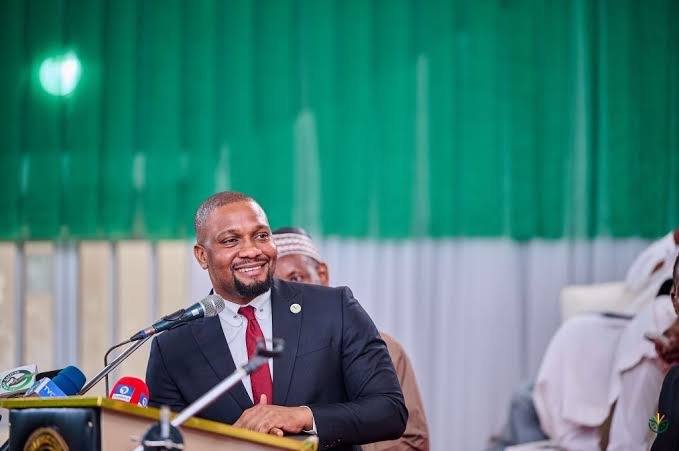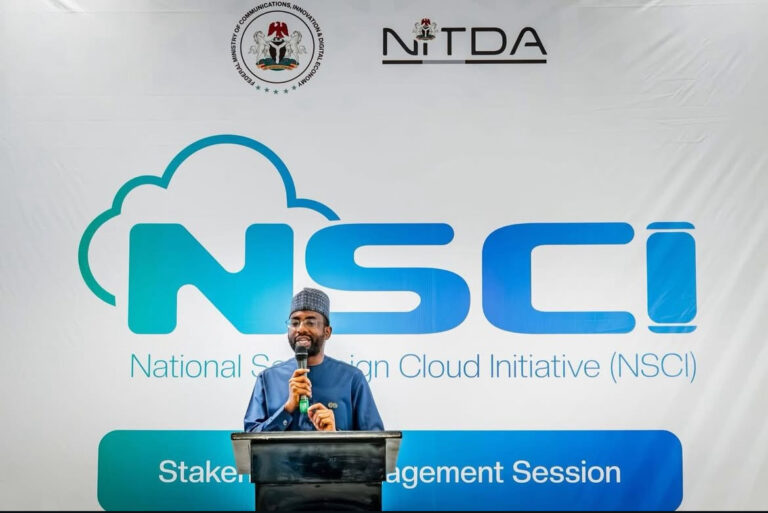Seyi Tinubu, a serial entrepreneur and advocate for youth empowerment, donated sanitary pads to 12,000 girls across the six area councils of the Federal Capital Territory (FCT) last week. This initiative was undertaken to commemorate World Menstrual Hygiene Day, observed annually on May 28th.
The outreach was a collaborative effort between the Almaasaareef Foundation and the Office of the Senior Special Assistant to the President on Citizenship and Leadership. The initiative aimed to address the challenges faced by girls in low-income communities regarding menstrual hygiene and its impact on their education.
During an address to students at Junior Secondary School, Waru, in the Abuja Municipal Area Council (AMAC), Rinsola Abiola, the Senior Special Assistant to the President on Citizenship and Leadership, lauded Mr. Tinubu for his generosity and unwavering commitment to empowering women and youth. She also encouraged the students to prioritize their education, emphasizing its importance in broadening their horizons and enabling them to identify opportunities for personal and professional growth.
Read more: Boko Haram: A Persistent Threat to Stability in Nigeria and Beyond
Ms. Abiola had previously stated on World Menstrual Hygiene Day that interventions such as the distribution of free sanitary pads are crucial, as menstruation often prevents girls in low-income communities from attending school. This absenteeism adversely affects their education and ultimately limits their leadership potential. The lack of access to menstrual hygiene products and proper sanitation facilities can create significant barriers to education and empowerment for young girls.
The Almaasaareef Foundation, led by Dr. Hauwa Aminu, played a vital role in the outreach by educating the students and community members on the proper usage and disposal of sanitary pads, promoting safe and hygienic practices. This educational component ensured that the beneficiaries not only received the necessary supplies but also had the knowledge to use them effectively and responsibly.
The outreach program spanned from Monday, May 26th, to Saturday, May 31st, reaching girls in various schools and communities across the FCT. Beneficiaries were selected from Junior Secondary School, Naharati, and Junior Secondary School, Sabon Gari in Abaji Area Council. In Kwali, the team visited Junior Secondary School Kwali Central and Junior Day Secondary School.
In Gwagwalada, the distribution took place at Junior Secondary School, Sabon Gari, Junior Secondary School, Abbatoir, and the Gwako Children Home.
In Kuje Area Council, the outreach extended to Junior Secondary School, Kayarda; Junior Secondary School, Kuje Central; Junior Girls Boarding Secondary School; School for the Blind; and the Disability Community in Kuchingoro, ensuring that vulnerable and marginalized groups were included in the initiative.
In Bwari, the team visited Junior Secondary School, Bwari Central, and Junior Secondary School, Bwari 1. In AMAC, the outreach took place at Junior Secondary School, Waru; Junior Secondary School, Takushara; Karu Children Home; and a collection of Islamiyyas in Mararaba Yarkasuwa, demonstrating a wide reach across diverse communities.
In addition to the school visits, the outreach team also paid courtesy visits to the traditional rulers in each of the six area councils, including the Etsu of Kwali, the Aguma of Gwagwalada, the Gomo Kuje, the Sarkin Bwari, and the Sapeyi of Garki. These visits underscored the importance of community engagement and collaboration in addressing the challenges related to menstrual hygiene and promoting the well-being of young girls in the FCT.







